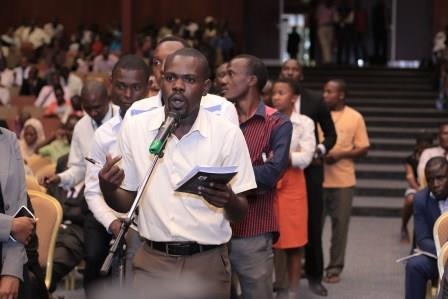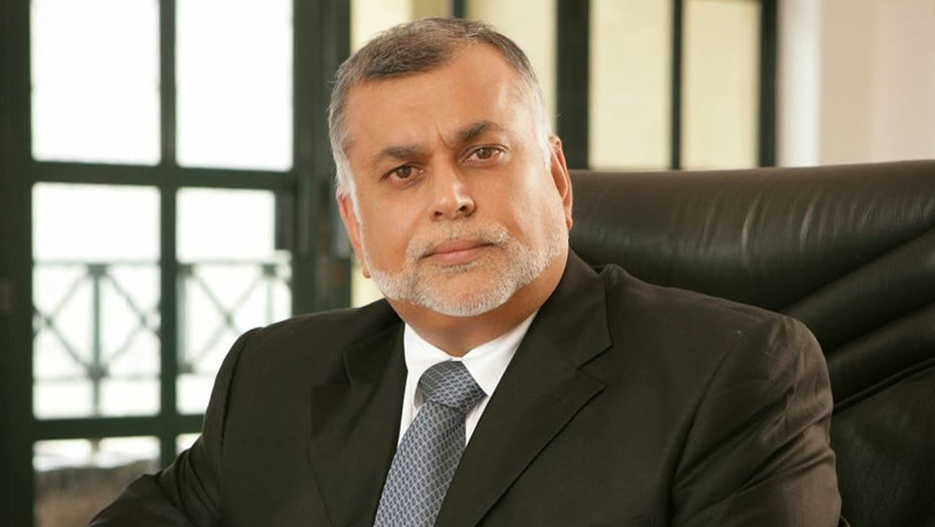The late Joseph Mary Mubiru was born on 29th January 1929 in Kalungu sub-county in the then Masaka district (now found in Kalungu district).
He was educated at Villa Maria Primary School (1938-1943), attended Secondary School in Bukalasa and joined St. Thomas Major Seminary Katigondo from 1951 to 1952.
After the Seminary, he briefly worked with the National Bank of India before joining the University of Kerala, Southern India from where he obtained a Bachelor of Arts (Honors) degree in Economics between 1954 and 1959. From 1959-1962, he attended New York University and obtained a Master of Arts degree
In 1963, the late Mubiru was briefly engaged by the United Nations Economic Commission for Africa (UNECA) before taking up a position as Assistant Secretary to the Committee of Nine for the establishment of the African Development Bank between 1963 and 1964. He returned to Uganda in 1964 and was appointed General Manager Uganda Credit and Savings Bank (UCSB). Following Government’s decision to transform the UCSB into a state commercial bank, he was appointed the first Managing Director of the Uganda Commercial Bank in 1965.
With the three East African states having recently attained Independence (1961, 1962 and 1963), the transition from the East African Currency Board to national Central Banks was being implemented. The late Mubiru was then appointed Chairman of the Committee for the Establishment of Uganda’s Central Bank, eventually becoming the first Governor Bank of Uganda in 1966.
While serving as Governor, the late Mubiru was designated a Fellow of the Institute of Bankers (London) and the International Bankers Association (Washington). He was also a founder member of the Uganda Institute of Bankers.
The late Mubiru is remembered for his contribution to Banking in various professional capacities during the formative years of the industry in Uganda and beyond. As the first Governor, he is credited with laying a strong and lasting foundation on which the Bank has over the years built and executed its constitutional mandate.
Mr. Mubiru served as Governor up to August 1971 when his contract expired. Thereafter, he joined the Madhvani Group of Companies. In 1972, while still working with the Madhvanis, Mr. Mubiru was appointed Advisor to the African Department of the International Monetary Fund. Tragically and most regrettably, he did not take up the appointment as he was shortly after abducted and eventually murdered under unclear circumstances.
He was supposed to leave the country for USA on 20th September 1972. The weekend before his departure, he paid a visit to his aging mother in Bweeyo Masaka district, he informed her how he was to relocate to New York. The mother didn’t like the idea, she begged her son not to go so far away as she was aging and needed him around. He postponed his departure for a week. It was during that week that the State research boys struck.
As he drove his Peugeot 504 saloon white in colour from his Lubaga Nabunya Road residence, he was intercepted at Nantawetwa Round about by men who were traveling in a green Peugeot 504. He was pulled out of his car and thrown into the boot of the green Peugeot, both vehicles were driven towards Malire barracks (Lubiri) and that was the last day Joseph Mubiru was seen.
Mubiru’s wife and relatives tried everything to locate him sometimes camping at Makindye barracks but after one month, one soldier, sympathetic to a woman told her to rest as her husband had been killed weeks back. The widow of Mubiru is still alive, staying somewhere along Entebe Road.
News of the abduction of Mubiru were relayed to then Chief Justice Kiwanuka by his political assistant Paul Semwogerere. Kiwanuka was having lunch and discussing disappearances of people with his son Mugumba who was a seminarian at Katigondo, Fr. Paul Kalanda and Fr. Clement Kiggundu and Fr. Augustine.
As chief Justice, Ben Kiwanuka tried all he could as chief justice to locate where Mubiru had been taken, he failed. Six days later, Ben Kiwanuka was also abducted. It is believed the two were killed on the same day and are buried in the same grave.
In recognition of Mr Mubiru’s outstanding contribution to the financial and economic development of Uganda, coupled with the impeccable professionalism he actively fostered in Uganda’s banking industry, Bank of Uganda organizes annual Joseph Mubiru Memorial Lectures, during which economic/financial topical issues of the day are discussed by leading personalities.
Among his contemporaries at the seminary were seminarians Cardinal Emmanuel Wamala, Paul Kalanda, Charles Kimbowa and others. When he left Katigondo, he took a scholarship to study economics in India. That is where he met with Bidandi Ssali, Adoko Nakyon and others. He was a brilliant student.
Mubiru despite serving under Obote I government, was very close to Ben Kiwanuka with whom they hailed from villa Maria Parish. In 1969, when Kabaka Mutesa II wanted to sale his Mutungo land, Kiwanuka, Mubiru, Kimbowa and other prominent catholic Baganda registered a company called Lake Victoria holdings. It is this company which bought the land.
Mr. Ssempa Eddie Robert contributed to this article.
Other Sources: BoU website.



